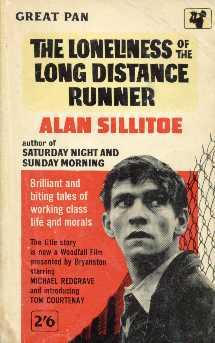The one aspect of the Internet
that is clearly superior to using books is that if you type in specific
information it will give you a specific answer.
For example, I was wondering
who was the author of the aphorism, “Politics is too important to be left to
politicians”. It seems to be that the
sentiment is particularly appropriate to the present situation in Catalonia and
I felt that it would be wrong to use the phrase without giving the source. So, in an atavistic moment I turned to my
books. My dictionaries (well, just a
small selection of them if I am honest) are within arm’s reach, which explains
why they were a possibility. If I had
had to get up and walk to a bookcase I would have used the computer.
But I didn’t. And, while I have the Encarta Dictionary
nearest to me (a hefty tome bought by me through one of my sixth form students
at a discount while she was working in Blackwell’s) next to my (well, Toni’s
actually, but I use it more than he does, so there!) Macmillan English Dictionary
For Advanced Learners, next to seven dictionaries of quotations, a Dictionary
of Ideas and The Pelican History of Art: Painting in Italy 1500-1600. A heavily weighted shelf!
My first choice to look up the
quotation was in The Oxford Dictionary of Modern Quotations with an irascible
Isherwood staring leftwards towards the back cover and to a rather more serene
looking Don Bachardy in Hockney’s double portrait of the couple. I opened the book at random, hoping to read
through a thematic section on ‘Politics’ to find that the dictionary had been
arranged by name of author.
This was a disaster.
My random page had a quotation
from my favourite composer Jean Sibelius (1865-1957) and I was surprised to
learn that he was the man who first
said, “a statue has never been set up in honour of a critic”. I must have know that, mustn’t I? But, whatever, it is back in the forefront of
my memory now!
Just before Sibelius’s entry
was one by Manny Shinwell (1884-1986) a Labour politician from my youth and, in
the next column another Labour politician, Sir Hartley Shawcross (born in 1902
and still alive according to my book published in 1991, but actually deceased
in 2003) saying after the victory of 1946, “We are the masters now!” Except that is not what he said, the exact
wording was, “We are the masters at the moment, and not only at the moment, but
for a very long time to come.” If only
that had been true!
On the same page are the last
eight of the 130 quotations devoted to George Bernard Shaw (1856-1950)
including one of my favourites, “Assassination is the extreme form of
censorship.”
There are song titles on these
two pages (200-201 if you must know) “Goodbye cruel world” Gloria Shayne;
“Little man, you’ve had a busy day” Sigler and Hoffman, extracts from songs like
“Yes! We have no bananas, we have no bananas today.” Silver and Cohn; “And
here’s to you, Mrs Robinson, Jesus loves you more than you will know.” Simon;
“Down in the forest something stirred: it was only the note of a bird.” Simpson. We have the title of a musical, “A funny
thing happened on the way to the Forum” Shevelove and Gelbart, and title of
Sillitoe’s novella “The loneliness of the long-distance runner.”
I am not listing these just
for the sake of doing so (though they are worth reading) these phrases have
survived because they have associations.
We may not give true credit to the authors whose names we might not know
or have never know, and even if we have we soon forget, but we might remember
their words. And there are historical,
cultural and personal resonances that each one of these phrases unlocks.
For example, the extract from
a speech to the Electrical Trades Union conference in Margate in 1947 that is
Shinwell’s only contribution to the book is not one that I know, but I remember
the character. I can remember him
speaking on the radio and television and I have a picture of a rumbustious,
amusing and socialist firebrand. A
living (if ageing, even then) representative of the Labour politics of the
Wilson era, during the time in my early teens when I became interested in what
the good and the great (yes, that is irony) were doing to my country and trying
to understand just why they were doing it.
Some of the songs have come
down to me in snatches that my parents sang; I remember seeing the old black
and white film of “The loneliness of the long-distance runner” and of reading
the book; everyone has his or her own memories connected with “Mrs Robinson”, I
would have been 17 or 18, just the right age to appreciate the angst!
The Sitwells are on these
pages, Dame Edith and Sir Osbert; B. F. Skinner (always a good name to drop
into conversation) with his observation, “Education is what survives when what
has been learned has been forgotten”; Red Skelton aka Richard Skelton with his
deathlessly acerbic comment on the crowds attending the funeral of Harry Cohn
in 1958, “Well, it only proves what they always say - give the public something
they want to see, and they’ll come out for it.”
And I still haven’t mentioned
Georges Simenon (1903-1989) honoured with two quotes, the first about having
sex with 10,000 women and the second where he asserts that, “Writing is not a
profession but a vocation of unhappiness.”
Memories, delight and
instruction from two pages that I “shouldn’t” have looked at and of course
wouldn’t have looked at if I had used the Internet and got the information at
once.
If nothing else, my meandering
around the two pages touched on memories, courses and reading I had done. It reminded me of a play “One Way Pendulum”
by N F Simpson that I haven’t re-read in half a century and the equally dated
concept of a “smoke-filled room” (Kirke Simpson) about where the male power
brokers were when they chose Warren Harding as Republican presidential
candidate in 1920.
Eventually, after much
cogitation and amusement I turned to the back of the book and looked in the
index for politics, and found an
entry,
p.
are too serious a matter DE
G 66.3
and was able to find what I
had been looking for quickly and efficiently.
Two adverbs that cannot be
applied to the continuing disaster of Catalonia’s quest for independence and
the authoritarian PP led minority Spanish government’s violent and mendacious
response. It appears increasingly
improbable that any real sort of accommodation will be made between the two
sides.
With Rajoy’s typically
lethargic approach to tackling a difficult problem before it becomes
intractable, we now have a situation where Catalonia is probably going to
announce or proclaim unilateral independence from Spain on Monday. The situation has not be ameliorated by the
schoolmarmishly negative contribution from the king yesterday where he
reprimanded Catalonia’s people and politicians for trying to break up Spain and
his cosy kingdom.
Although the referendum had
over two million voters participate, the majority of the voters did not. Three of the main national political parties
vowed to have nothing to do with what they termed an “illegal” referendum and
urged their supporters to follow their lead.
Many did.
The violence that the national
Spanish police used to try and stop the referendum will have revolted many more
than those who voted, but Rajoy knows that his tactics (if his woeful
indecision and negativity can be called that) will play to the prejudice that
many Spaniards have against Catalonia and the Catalans and he will lose little
electoral advantage by playing the heavy hand with an area which has long been
the subject of envy and distrust by the majority of their fellow citizens and
the source of few votes for his party.
If the President of Catalonia
goes ahead and declares independence then Rajoy will have to respond. As Rajoy seems incapable of any political
subtlety, and as he has shown himself incapable of any reasonable compromise he
will have to resort to force.
Over the past few weeks the
central Spanish government has been stealthily taking over control of certain
aspects of the Catalan government’s responsibility. If independence is declared then the Spanish
government has a number of choices available.
It could regularise the taking
away of responsibility by invoking article 150 of the Constitution. This article that has never been invoked
before, will allow the central Spanish government to take over all the functions
of the Catalan government. This will and
must lead to massive civil unrest.
I hope that the Rajoy minority
government are not so cynical as to hope that their constant pushing will
produce some sort of violence that will ‘allow’ the state to bring in the armed
forces, above and beyond the armed national police, to restore ‘order’. I do not like to speculate on the
consequences of such action.
In a positive sense I would
like to think that even at this late date, some sort of common political sense
will prevail and the two sides will settle down to serious, real negotiations
in which nothing is ‘off the table’ - up to and including a binding referendum
about independence for Catalonia at a future agreed date.
I have to be truthful and say
that nothing over the past few years in the political field of Spanish
government has encouraged me to think that anything approaching common sense
will guide our political masters.
I ask those inside and outside
Spain and Catalonia to keep watching what is happening and use your voices to
try and get a settlement to the present situation that benefits all sides.
And if you don’t feel that you
can do that, then please note how power is being abused in Spain and Catalonia
and use your voice to tell the perpetrators that they are being watched and that
there will be a time when they will be held to account.
Your voice and those of your
friends and neighbours are going to be increasingly important in getting out to
the world exactly what is happening and what is likely to happen in Catalonia.
Keep watching.
Oh, and in case you were still
wondering and hadn’t worked out the clues in the index listing, the quotation at
the start of this piece came from the mouth of Charles De Gaulle, perhaps the
quintessential non political politician!
And the actual, accurate quote is, “I have come to the conclusion that
politics are too serious a matter to be left to the politicians.”




